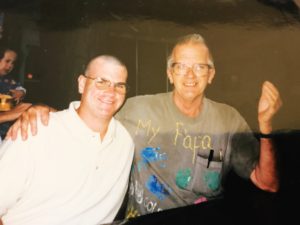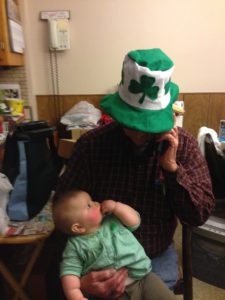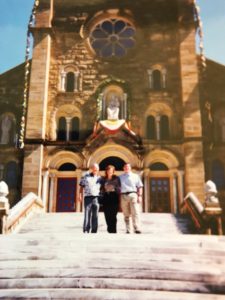At a Sunday worship at the end of summer I answered 5 questions that Amy and some others thought would be interesting to hear my response. I did not know the questions ahead of time. I was only given 1 minute to respond to each question. To refresh your memory, the questions were:
Why does God allow trials and suffering in our lives?
How do I deal with people in my life who have hurt me?
How do I know if I am hearing God’s voice in my life? What one book other than the Bible has most influenced your life?
What are things parents can do to instill in their children a love for Jesus? [Sept blog post]
Last month I responded to the question about instilling a love for Jesus in our children. This month I want to dwell with you about how we know if we are hearing God’s voice in our life.
Summer has departed us and the leaves of fall are beginning to flash their brilliant colors. Some people spend too much of their time living only in the future or get stuck living in the past. The past and future are critical and are bridged by the present moment. However, living solely in the past or future may rob us of the beauty of the present time. Our lives focused solely in the past may be likened to driving a car with eyes glued on the rear view mirror. The mirror is important, but our eyes fixed only upon the rearview mirror (with the car in drive) will cause a quick accident. The following reflection beautifully connects God with the past and future moments of our lives.
I was regretting the past and fearing the future.
Suddenly God was speaking.
“My name is I am.”
I waited. God continued,
“When you live in the past, with its mistakes and regrets, it is hard. I am not there.
My name is not ‘I was.’
When you live in the future, with its problems and fears, it is hard. I am not there.
My name is not ‘I will be.’
When you live in this moment, it is not hard. I am here.
My name is ‘I am.’
You may be wondering why I am citing this beautiful poem to talk about hearing God’s voice. I suspect many of us don’t even know if we are hearing God’s voice because we have so many ‘voices’ seeking our attention. Whether it’s work, family, school…we all have those things and people competing for our attention and time. We seek out Google to answer daunting questions of life rather than sit and ask God. It’s the pace of the world- how fast, how high, how much, how efficient can we be when it comes to living our life. Many of us are stuck in the past while some of us are already in gear for tomorrow. But what about now? What about today? God is about this place here, in all its thisness, and placiness, and about the intimate and immediately Holy One who, at no distance from us at all, moves mysteriously to make creation true both to itself and to him. God is about now…God’s voice is now. And that voice wants to wrestle with us…remember the story of Jacob classic Old Testament story?
From Genesis 32… 1-2 And Jacob went his way. Angels of God met him. When Jacob saw them he said, “Oh! God’s Camp!” And he named the place Mahanaim (Campground). 22-23 But during the night he got up and took his two wives, his two maidservants, and his eleven children and crossed the ford of the Jabbok. He got them safely across the brook along with all his possessions. 24-25 But Jacob stayed behind by himself, and a man wrestled with him until daybreak. When the man saw that he couldn’t get the best of Jacob as they wrestled, he deliberately threw Jacob’s hip out of joint.

26 The man said, “Let me go; it’s daybreak.” Jacob said, “I’m not letting you go ’til you bless me.” 27 The man said, “What’s your name?” He answered, “Jacob.” 28 The man said, “But no longer. Your name is no longer Jacob. From now on it’s Israel (God-Wrestler); you’ve wrestled with God and you’ve come through.” 29 Jacob asked, “And what’s your name?” The man said, “Why do you want to know my name?” And then, right then and there, he blessed him. 30 Jacob named the place Peniel (God’s Face) because, he said, “I saw God face-to-face and lived to tell the story!” 31-32 The sun came up as he left Peniel, limping because of his hip. (This is why Israelites to this day don’t eat the hip muscle; because Jacob’s hip was thrown out of joint.)
Jacob “wrestled” with God. Whatever happened at that campsite, it was intense, personal, perplexing, inspiring, life-changing and full of blessing. I love the image of wrestling with God. Jacob had this dramatic moment of divine prayer and conversation that lasted all night until daybreak. What happens at daybreak? The sun rises. In our faith, we believe in the resurrection or the SON RISING after the darkness of night. How do we know we are hearing God’s voice in our life? Is it something we wrestle with? Is it something that keeps us awake? Where is the cross— because the voice of God always is accompanied by the cross. That doesn’t necessarily mean it will be painful, but it will change us. The voice of God asks, invites, challenges and demands that we die to ourselves- that we let something go in order to take on something new. God’s voice is calming, reassuring, loving…God’s voice is truth itself.
I never wrestled on a team, but I’ve wrestled with God.
Back when I was a priest I met a young woman who took my breath away. She had the beauty of an angel and a soul like a dove. Amy captured my heart and imagination. But I loved being a priest and serving God in that capacity. I fell in love with Amy. I had to grapple with these feelings and answer some pretty difficult questions. There were many “voices” in my head…my family, Amy’s, my spiritual director, my pastor, the Cardinal- ArchBishop in Chicago, and my own. Which one do I listen to? Which one do I trust is guiding me in the right path?
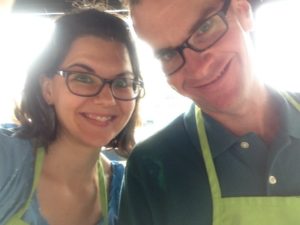
And there was another voice in my heart…God’s voice was always there not judging or pushing but rather shepherding and holding me. I had to quiet myself down. We often think of prayer has us talking with God. And that’s partly true. But the most important aspect of prayer is quieting ourselves down and listening to the voice of God. And I did. I opened my bible. I lit candles. I got quiet. I went for walks. I sat in a darkened church. I was never alone, though. God’s voice was always with me. It took time to prayerfully consider how God was moving and acting in all of these feelings I was having. I was wrestling with the God I had been faithfully serving as a priest for some 6 years at that point. Why me? Why this? Why now? Didn’t God want me to be a priest? Had I gotten that wrong? Were these just romantic feelings I was having for Amy? Was I lonely? What would this mean for me? For her? If I wasn’t a priest, what would I do? These were all the questions I wrestled the great “I Am” about.
The voices of this world lead us down the most convenient easy painless path. Society tries to sell us on just that- take this pill and lose all the weight…put this cream on and lose the wrinkles…invest this amount of money and get oodles back instantly. God’s voice doesn’t work that way. God takes us down the path most wouldn’t freely choose and not because God thinks less of us. No, God takes us down His path precisely because He loves us. God’s voice and presence ultimately led me to leave the priesthood, marry Amy, have a family and then surprisingly call me to minister in an ELCA congregation. That was not quite the road map I had envisioned for myself back in 2005 when I was ordained. But God had a better way for me. And God’s voice gently guided me to make the course changes in my life. Like Jacob, I came out changed and different from the experience of wrestling with God.
Here’s a couple of steps or tips I have found useful in listening to God’s voice in our lives:

1.Check your receiver. Do you expect to hear from God? You should. But what happens if your receiver- soul, heart, ears, eyes- is not turned on? It’s like the guy who prays and prays to win the lottery. He never wins. He yells at God. God says you need to buy a lotto ticket and give me a chance! Turn your receiver on. God talks to us everyday but if we aren’t expecting it, we will never hear it.
2. Find God’s frequency. I think we often expect some big grand voice from the sky telling us what to do like in the case of Moses. God works in the simple, ordinary moments. Put down the phone, lessen the screen time, talk to your spouse, play with your kids, take a walk. My AM/FM alarm clock works great when I have the frequency set just exactly right, but when the dial gets turned I hear the static and multiple voices. Cut out the static in your life.
3.Discern or wrestle with God’s voice. Most of us have caller id so we know who’s calling us before we even pick up the phone. But before the days of caller id I suspect most of us were able to tell in the first few seconds who was calling us by the sound of their voice. We only know God’s voice when we spend time with God. Take time with God each day. A moment here. A deep breath there. It’s not that hard. Take a walk. The more time you spend with God the more comfortable you will be knowing that voice in your life.
4. Connect God’s Voice to God’s Word. This might be the surest way of knowing God’s voice in our life. Is the voice we hear in line with Word we read in the Bible? God’s voice wants to bring blessing, joy and true happiness into our lives. God’s Word and Voice by its nature cannot lie. Dwelling in the Word can only help us better tune into God’s voice in our lives. Find a bible story or verse and read it several times over. What is God’s Voice saying to you?
The best part of hearing God’s voice is eliminating all the counterfeit voices vying for our attention. Live in the moment and hear God’s voice. You will find and know joy. Go be a God-Wrestler! Jacob’s hip was thrown out of its place because of his wrestling with God. Like Jacob, you too will be left with an unforgettable and deep impression made by God’s voice on your life. When you check your receiver, tune into the frequency, wrestle with God’s voice and connect it to the Word, you will experience a life-changing event. And it will be more than just an event; it will become a lifestyle for you. Sheep know the voice of their shepherd. Let’s tune into the voice of our Shepherd. The voices of this world come and go…the voice of the great “I Am” stays with us forever. And hey, like me, you might just be surprised what God has in store for you!

 Each Lent we partake in a particular “almsgiving”- a special offering which we lift up a work or ministry outside of BLC. This year our focus is two-fold: half collected will go to the Nabor House in Houston (a Christian preschool the youth from BLC did their service day at last summer in Houston) and the other half to Join the Movement (a 501c3 non-profit organization to provide awareness and education about what human trafficking, sexual assault and internet safety).
Each Lent we partake in a particular “almsgiving”- a special offering which we lift up a work or ministry outside of BLC. This year our focus is two-fold: half collected will go to the Nabor House in Houston (a Christian preschool the youth from BLC did their service day at last summer in Houston) and the other half to Join the Movement (a 501c3 non-profit organization to provide awareness and education about what human trafficking, sexual assault and internet safety). 

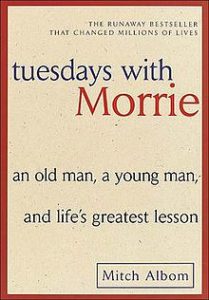 I’d like to think that has the Spirit prodded me to give that response, the platform with how I base live and minister seemingly came to the surface. If you have never read the book, go get it. It won’t take you long to read at a short 192 pages. It’s a quick read. If it’s been a while, go check it out from the library and re-read it. If you’ve never heard of it, here’s the summary from the inside cover of the book:
I’d like to think that has the Spirit prodded me to give that response, the platform with how I base live and minister seemingly came to the surface. If you have never read the book, go get it. It won’t take you long to read at a short 192 pages. It’s a quick read. If it’s been a while, go check it out from the library and re-read it. If you’ve never heard of it, here’s the summary from the inside cover of the book: 